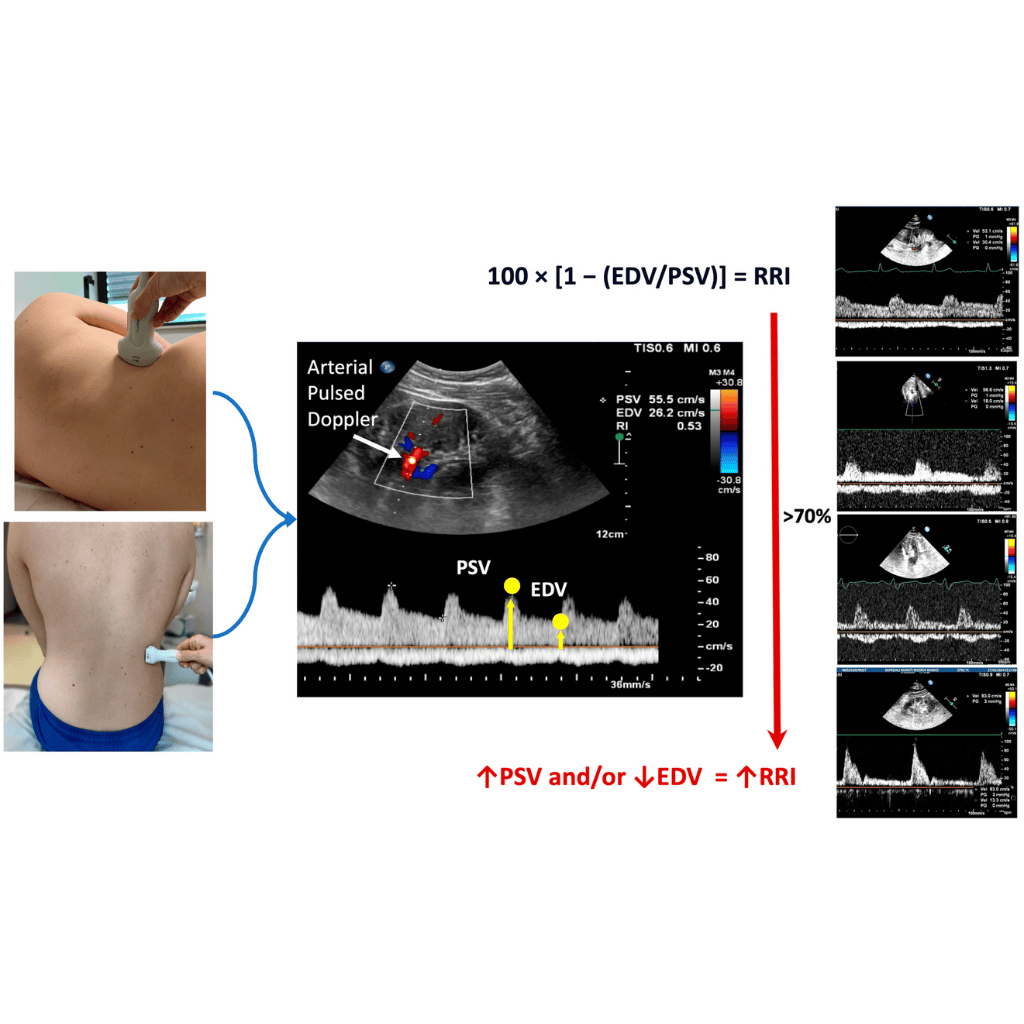What is a Renal Artery Doppler?
Renal Artery Doppler is a specialized ultrasound study that evaluates the blood flow in the arteries supplying the kidneys. This non-invasive imaging technique helps detect blockages, narrowing (stenosis), or other abnormalities that could affect kidney function.

Why is Renal Artery Doppler Important?
- Detects Renal Artery Stenosis (RAS): A condition where the arteries supplying blood to the kidneys become narrowed, leading to high blood pressure and kidney damage.
- Assesses Blood Flow: Helps evaluate if the kidneys are receiving an adequate blood supply.
- Early Diagnosis: Timely detection of vascular abnormalities can prevent further complications like chronic kidney disease or hypertension.
- Monitors Kidney Health: Useful in patients with diabetes, high blood pressure, or those undergoing kidney transplant evaluations.
How is the Test Performed?
Patient Preparation:
- You may be asked to fast for 6-8 hours before the test to reduce bowel gas interference.
- Wearing loose, comfortable clothing is advised.
Ultrasound Procedure:
- A specialized gel is applied to the abdomen.
A Doppler ultrasound probe is moved over the skin to capture blood flow in the renal arteries.
- The Doppler technology analyzes the speed and direction of blood flow, identifying any blockages or narrowing.
Duration & Comfort:
- The procedure takes about 30 to 45 minutes.
- It is completely non-invasive and painless.
Results & Next Steps:
If abnormalities are detected, additional tests like CT angiography or MRI may be recommended.
FREQUENTLY ASKED QUESTIONS
Q.1. Who needs a Renal Artery Doppler?
This test is recommended for individuals with:
- Uncontrolled high blood pressure, especially at a young age.
- Suspected renal artery stenosis (RAS).
- Chronic kidney disease (CKD) with uncertain cause.
- Diabetes and long-standing hypertension, as they are risk factors for kidney disease.
- Kidney transplant patients to assess blood flow to the transplanted kidney.
Q.2. Is the Renal Artery Doppler test safe?
Yes, the Renal Artery Doppler is completely safe. It is radiation-free, painless, and non-invasive, making it an excellent first-line test for kidney-related vascular conditions.
Q.3. How do I prepare for a Renal Artery Doppler test?
- Fasting (6-8 hours) before the test is usually required to reduce interference from gas in the intestines.
- Avoid smoking and caffeine before the test, as they can alter blood flow patterns.
- Drink water if permitted by your doctor to stay hydrated.
Q.4. What happens if the Renal Artery Doppler shows narrowing or blockage?
If significant narrowing (stenosis) or obstruction is found, your doctor may recommend:
- Medications to manage high blood pressure.
- Lifestyle changes, including a healthy diet and regular exercise.
- Further imaging tests (CT angiography or MRI) for detailed evaluation.
- Angioplasty or stenting, in severe cases, to restore proper blood flow to the kidneys.
Q.5. Can Renal Artery Doppler diagnose kidney failure?
No, the test does not diagnose kidney failure directly, but it helps detect vascular causes of kidney dysfunction. Other tests like blood tests, urine tests, and kidney function tests are required for a full kidney evaluation.
